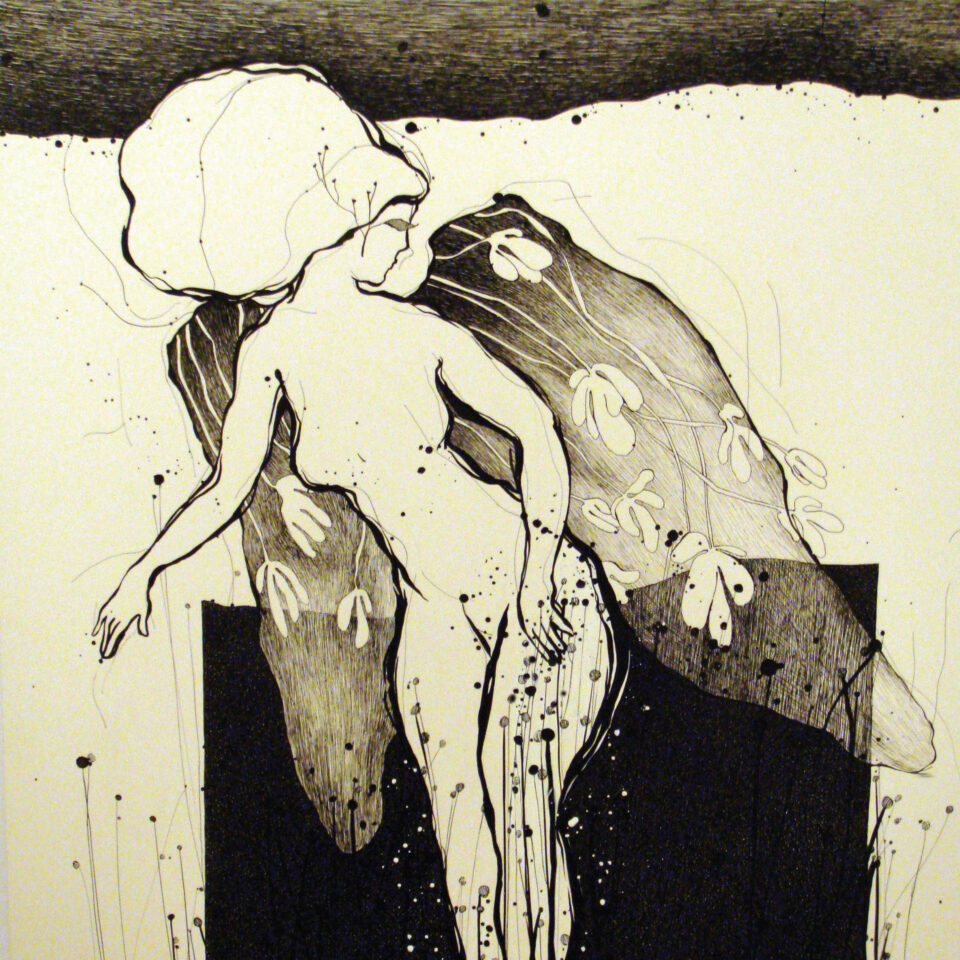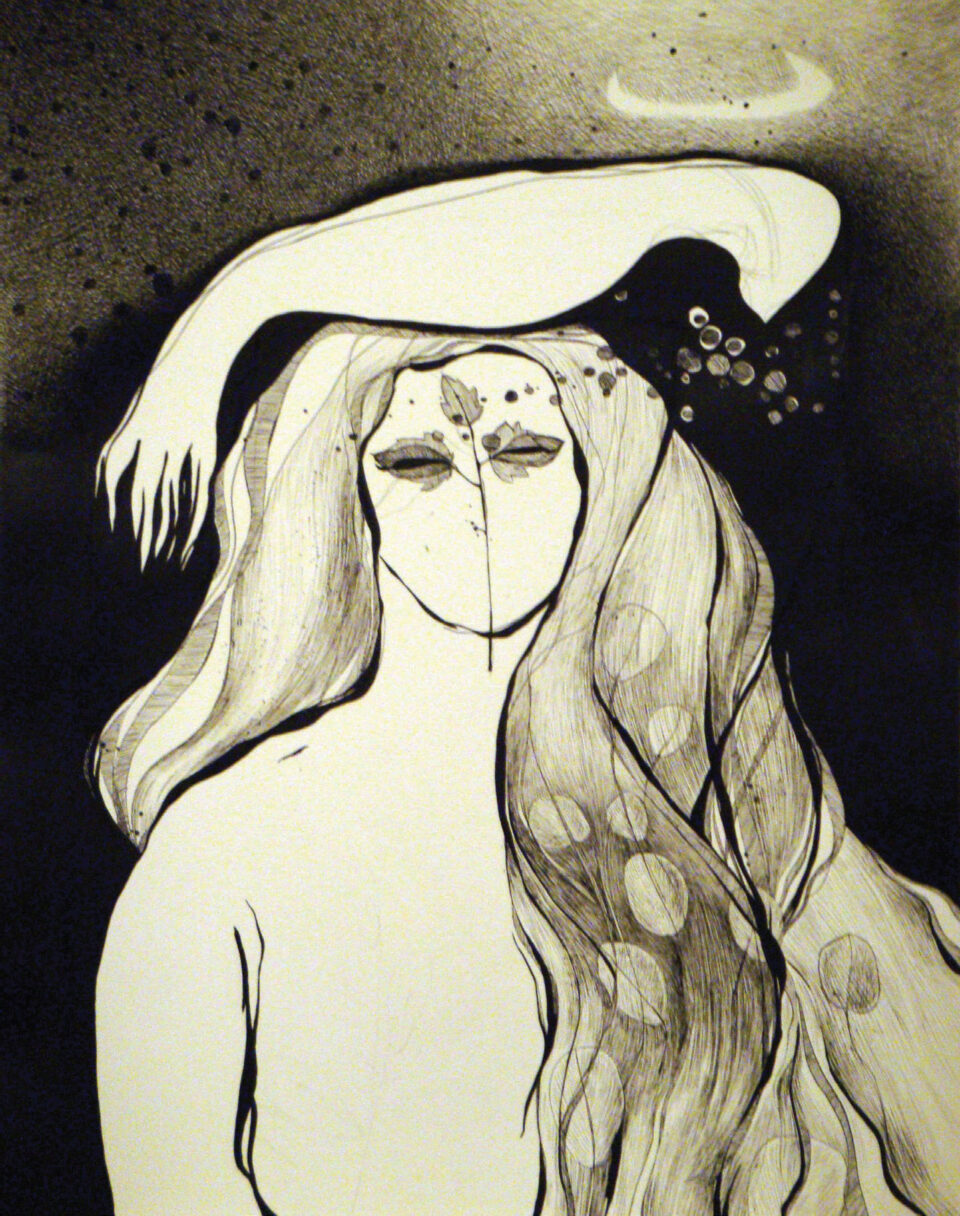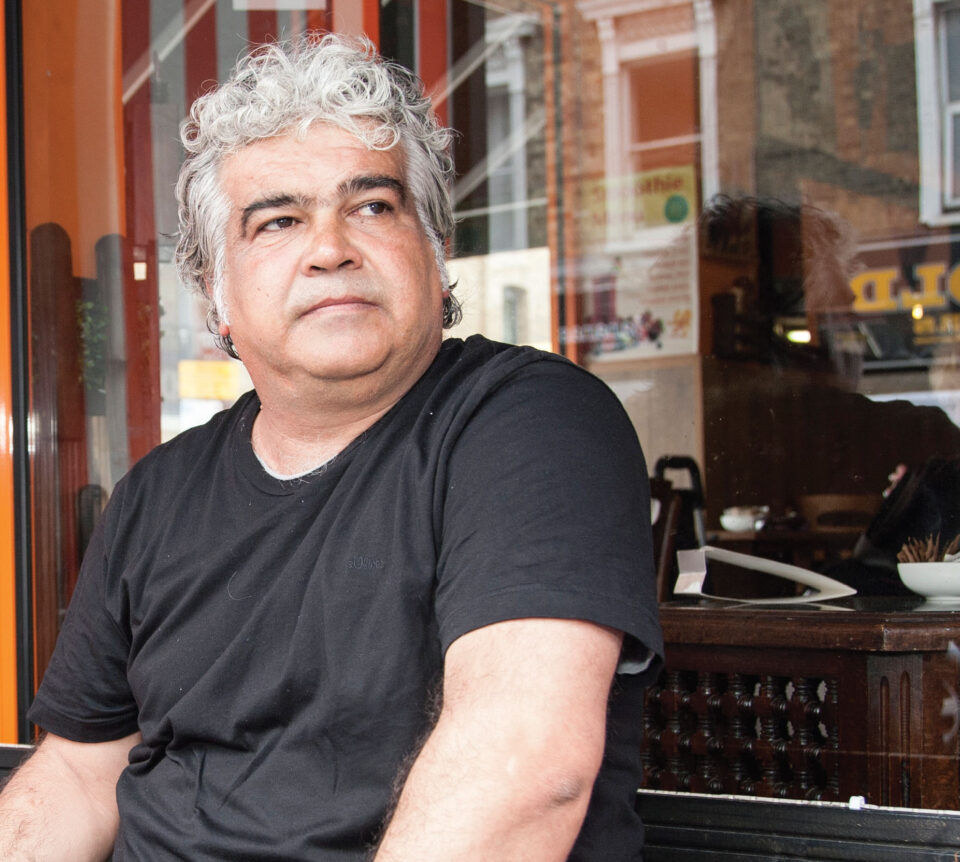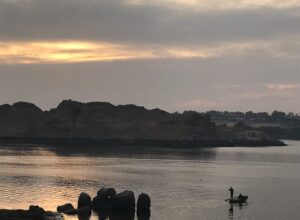“The mysterious queen was wrapped
in myths woven by her enemies.”
The goddess, the mother goddess, the productive earth, Ishtar, Ashtoreth, Astarte, Athar.
The queen immortalizing a small oasis by dignity and pride.
The nun still hymning in Aramaic after two millennia of Judas’s betrayal.
The mother spending most of her life cooking and preparing thyme and olive oil for her family.
I will not mourn her now. I will not cry again. I will not accept any more condolences. I am returning today to rejoice, cherish, and venerate the goddess, the queen, the nun, and the mother.
In a land “flowing with milk and honey.” Whose fertility tinted the dead sands of Asia in every possible green shade before kissing the salty Mediterranean and made it the reward at the end of every barren and dismal silk road. A land whose beauties seduced invaders and crazed tyrants. Where Assyrians, Amorites, Hittites, Canaanites, Phoenicians, and Aramaeans delicately brushed and interwove her long silky hair before it was suddenly pulled by the Egyptians, Sumerians, Babylonians, and Persians, till young Alexander crossed the Aegean to tighten a Hellenistic band around her flowing tresses. The Romans intervened to make sure that Zenobia’s dark braids were plaited in their style before they disappeared beneath a white veil as pure as that of the Virgin.
In cities older than time, her sons chiseled life with their sweat, songs, pain, and hope. She blessed them as she whispered their stories. I heard them all, and I came today to recall them, cry them, and sing them again to you, and to hail her with her endless legacies and golden glories.
The goddess Ishtar, who sowed prosperity everywhere, did not know how and where to begin. Her eyes shone with pride and happiness, before smiling to allow the words to whirl around her tender voice. It all started here, in the same place where Cain killed his brother Abel with a rock. On one of these silent mountains, Adam came to mourn his son, the first human to die. From his tears and pain, Damascus was born. A city that grandmothered the most ancient ones, and witnessed patiently their birth and decay. A city whose name had sparkled sixty times in the Bible. A city whose grace guided the Jewish traveler Saul of Tarsus to Christianity, and recreated him as the Apostle Paul in one of her streets. A city which Prophet Muhammad refused to enter.
Why? The truth is covered by many colorful velvet legends; one says that on the horizon the Prophet saw how beautiful the oasis city was, so he decided to stop his journey because “man should only enter paradise once.” In a different, yet generally accepted story, when Prophet Muhammad was a young boy accompanying his uncle’s merchant caravan, and as they passed by the southern city of Bosra, he met a monk who believed that a prophet was soon to appear among the Arabs. As soon as Bahira the monk saw Muhammad, he realized that he carried all the signs of the awaited prophet described in his old manuscripts. Accordingly, he advised Muhammad’s uncle to take him back to Mecca as soon as possible to protect him against possible enemies. The goddess sighed and continued, saying that even if Muslims believe that Muhammad did not enter the city, they are waiting for Jesus’s descent from heaven onto the white minaret of the city’s great mosque. However, between the death of Abel and the descent of Jesus, my city has never paused; it kept enchanting her generous people and their visitors. The verdant orchids hugging the city showered her with flowers, scented herbs, and fruits year-round, as the Barada river washed her slowly and tenderly.
I saw kingdoms and dynasties whirling around its churches, mosques, and palaces, and listened to their murmurs praying, moaning, and singing. I lingered around the cobbled winding alleys, roamed the legendary bazaars, meditated in the shaded courtyards, and was purified in the ancient balmy hammams. I lost myself in the goddess; I embraced Damascus with all my senses and surrendered to the spell of the immortal city, the city of jasmine.
The queen called; she commanded me to come closer. To cross the arid emptiness, and visit Palmyra. The “bride of the desert.” The provincial town that woke up suddenly to conquer Egypt. The oasis that dared to oppose Rome. The booming voice echoed around Corinthian columns, archways, theaters, ornate tombs and reached her gods, Bel, Nebo, Arsu, Baalshamin in their magnificent temples. Zenobia’s eastern flair, stubbornness, beauty, and wisdom glowed over the golden stones as a quick mirage and an unfulfilled dream. I traced her elegant steps around her thriving cosmopolitan city, where Aramaic, Greek, and Palmyrene burbled in its markets. The mysterious queen was wrapped in myths woven by her enemies, who bestowed all their misconceptions about the east generously on her. The Roman prejudice did not expect or accept that the Regina Orientis expand her territory, so they simply crushed the magnificence, looted the treasures, and dissolved her nascent empire. The courageous beautiful Queen of the East was dragged to Rome in humiliation while her people were scattered in the ruthless sands.
The sun and heat crescendoed, forcing me to leave the splendorous ruins, the shadow of the ambitious queen, and to ignore the savage screams of Rome’s mob.
“But I say to you, love your enemies, bless those who curse you, do good to those who hate you, and pray for those who insult you and persecute you…” These prayers resonated across the rugged mountains hugging Maʿlulla. The small village capped by a sacred halo woven for two millennia by priests, nuns, and worshipers, who have been flocking here seeking blessings since before the herds of tourists who come to listen to an almost extinct language, the same language spoken by Jesus. An old nun approached me smiling and offered to show me the village; she moved calmly around the young crowds and I followed. Arabic was replaced by Aramaic, which for my ears was a strange combination of Turkish, Hebrew, and even Farsi, a strange rearrangement of letters or a harsh deconstruction of Arabic words.
My childish attempts to relate the sounds around me to Arabic words did not surprise my kind host. The hills guarded the monasteries which guarded the relics of the martyrs which guarded the pure faith. Maʿlulla had a unique feeling, a flair of a silent and serious religious carnival, all the ingredients of a lavish moulid were scattered around me, yet in an unfamiliar stillness. The serenity of my nun and her village made any attention given to the history or architecture of the monasteries seem superficial and unnecessary. The cool interiors, the whitish-grey surfaces, and the elegant icons with formal stiff features of saints and angels contrasted to the surrounding landscape of steep mountains and faraway green fields. The long black uniform caressed the stone floors as the nun murmured her prayers and returned peacefully to a silent corner. She said too little, yet I heard and understood too much. I thanked her before she disappeared again in her celestial world, a world that one hopes to reside in or even visit.
Busy, tired, short-tempered, and funny as most mothers, she yelled at me to come quickly, carry her heavy bags, and follow her around the endless vaulted lanes of Aleppo’s bazaar. I struggled to distribute my attention between the finely decorated entrances I was passing and the clumsy teenagers pushing their huge carts towards me. The labyrinth was eternal and al-khala seemed determined to buy everything available. She stopped at almost every stall chatting with the vendors, discussing prices, gossiping, and complaining of the unusual heat. We bought hummus, olive oil, thyme, garlic, peppers, raisins, nuts, and other spices that I have never seen nor smelled before.
She made sure that I tasted whatever we were buying, so a green olive was followed by a dried fig, a pinch of bitter thyme was forgotten with soft pistachios and salty cheese. She was smiling, patting my back and praising Aleppo and its surrounding lush fields, blinking her eyes in a playful manner, and assuring me that Aleppo has the best produce and that no one can compete with the Aleppine women. As we spun from one lane to the other, a massive mound topped by a medieval citadel blocked the horizon. While gazing at the monument, she hurried me and said, “These are just stones, dead silent stones, the beauty of Aleppo is around you,” she laughed and added, “…and in the bags you carry.”
Throughout the afternoon, al-khala was cooking relentlessly and recalling the history of her city, the defeats and glories, the glorious days and the barren years. Proudly listing the different ethnic groups that formed the beautiful, rich and unique mosaic of Aleppo: Arabs, Kurds, Armenians, Circassians, and many other groups, who came here to trade and work, bringing their icons, spells, songs, poems, and jokes. Each adding a color, a melody, a proverb to charming generous Aleppo. Her ringing voice faded into the noises of the clattering of numerous mezze plates onto an endless table for all her dear relatives and friends. Jokes danced around the table throwing back sweet happy laughs but her faint voice was still heard.
All artwork is courtesy of Eman Osama.








